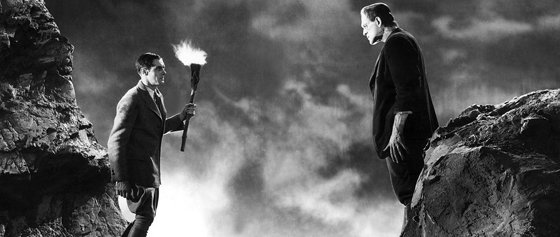“Have you never wanted to look beyond the clouds and the stars, or to know what causes the trees to bud? And what changes the darkness into light? But if you talk like that, people call you crazy. Well, if I could discover just one of these things, what eternity is, for example, I wouldn't care if they did think I was crazy.”

If Dracula is the art house film of Universal’s original run of monster films, then Frankenstein is the crowd-pleasing blockbuster. That’s far from saying it’s dumbed down, however – if anything, it improves on what Dracula does well and throws in a few extras to sweeten the pot. The pacing is more taught and the film’s forward momentum moves at a breakneck pace; the acting is across-the-board fantastic; dialogue is snappier, deeper, and provides both philosophical monologues and well-placed moments of levity; special effects are more seamlessly integrated, etc. The set design is even more impressive; Victor Frankenstein’s mill/laboratory is absolutely stunning. Sharp angles and extreme blocks (seemingly anticipating Brutalist architecture over two decades early) run headlong into staircases warped in rounded, funhouse mirror shapes; it’s as if Frankenstein’s fractured, obsessed mind has been given concrete, external form. Which, of course, is the entire point of his experiment. In the end, he’s literally carried away by his own imagination. The Promethean myth is a perennial trope in horror and science fiction, and it has yet to find a more clarion voice than in this film.

No comments:
Post a Comment